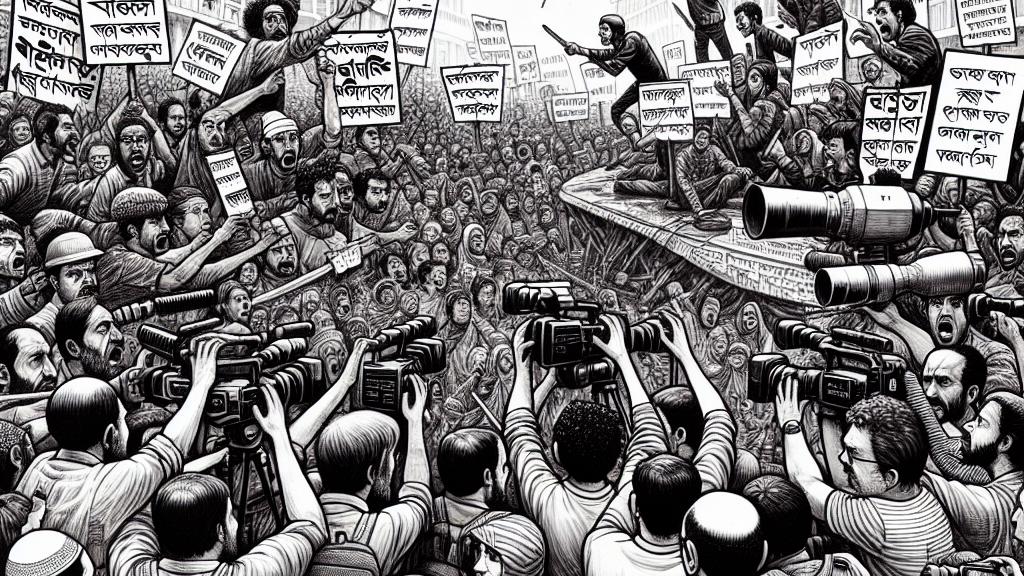Media Madness: Bangladesh Bounces Back from Turmoil!
Overview
- Bangladesh media confronted violent assaults amid political upheaval.
- Journalists were directly targeted for perceived governmental bias.
- Despite these odds, the media sector is steadily rebuilding and reforming.

The Catalyst of Political Unrest
In Bangladesh, the political landscape has shifted dramatically, igniting fierce protests against the government led by former Prime Minister Sheikh Hasina. Following her controversial election victory, students and activists mobilized in Dhaka and other major cities, demanding accountability and reform regarding employment quotas favoring certain demographics. This grassroots activism rapidly escalated into widespread unrest as citizens expressed their frustrations over corruption and authoritarian policies. The environment was charged with urgency and anger, and as protests intensified, the media became an unwitting target amid allegations of bias, with various channels accused of supporting Hasina's regime.
A Dangerous Climate: Violence Against Journalists
Journalists in Bangladesh faced unprecedented challenges as they attempted to cover the unfolding events. Several well-known media houses, such as Ekattor TV and Samay TV, were raided by mobs claiming they were 'pro-Hasina', resulting in injuries to reporters and substantial damage to property. A particularly harrowing incident involved a female journalist who was attacked, emphasizing the physical risks faced by media professionals during these hostile encounters. The government's crackdown on dissent, fueled by the 2018 Digital Security Act, coupled with internet blackouts during significant unrest, created a risky atmosphere that limited the press's ability to operate freely and safely. Many journalists found themselves caught between their duty to report and the very real threats to their safety.
Resilience and Recovery: The Media's Comeback
In the face of adversity, the resilience of Bangladesh's media is beginning to shine through. As the political situation stabilizes with the establishment of a caretaker government led by Nobel laureate Muhammad Yunus, media outlets and journalists are regrouping to reclaim their narrative. They are collaborating in solidarity to craft stories that demand accountability from those in power. Creative strategies are emerging as media professionals reconstruct their newsrooms and redefine their editorial lines, all while staying committed to truthful reporting. The revival of broadcasting by channels like Ekattor TV and Samay TV serves as a beacon of hope, indicating a movement towards a more robust media environment that values transparency and civil liberties. This resurgence not only signifies a return to normalcy but also points towards a future where journalistic integrity and freedom can flourish.

Loading...